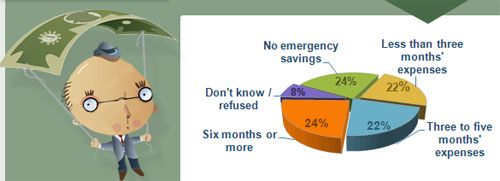People can't stop talking about the possibilities of a second recession, which may very well be redefined as the continuation of what becomes the broader-defined Great Recession of the decade.
Between talks of European economic crisis and American debt doom, the average man and woman who have to deal with these realities are talking about how to make ends meet. Luxuries of years past have been stripped away, such as two cars in the garage, constantly updated wardrobes, and state-of-the-art technology. But relatively speaking, are these really sacrifices, and do we remain tasked with having to sacrifice much more in order to survive impending economic calamity?
In A Rut Of Self-Indulgence
Despite struggling to make ends meet at the end of every month, I still chuck $100.00 to my mobile service provider in as much time. For what exactly? The essential aspect of a phone is the ability to communicate with the outside world, but not be constantly attached to it, which is what my unlimited data plan encourages me to do. The prepaid phone, even a smartphone model, would cost significantly less by limiting what I can do. Yet I want that unlimited streamlined service, even though I can easily live without it while still having the usefulness of a mobile phone.
Countless families across the country are still stuck in similar ruts of self-indulgence. Consistent credit card bills plus news of a worsening economy plus barely getting by should equal the abandonment of entertainment in favor of austerity. To do anything other than that is logically idiotic. Yet we all continue to essentially waste money on the here and now.
Prioritizing Our Spending
But entertainment and pleasures can't be the only enemy to attack. To be honest everyone needs a night out at the movies and creature comforts during these tough times. We just need to prioritize them much more than we currently do. The major obstacle in our way is not the need for fun and games, which are essential, but our inability to understand the importance of moderation, especially in times like these.
Food is another major source of spending that can probably be seriously revamped by the majority of American families. Studies confirm that American food portions have increased significantly since after the Second World War. Modern American families are not familiar with healthy portions. Reduced levels of food consumption can be hard to commit to for a number of reasons, but it can reduce monthly household spending significantly.
The 2008 financial collapse caused millions of Americans to rethink the way they spent their money. But maybe it will be the unfortunate resurrection of a recession in 2012 that makes Americans realize that “toughing it out” is something they aren't exactly used to. But in tough times, it's an essential part of survival.


